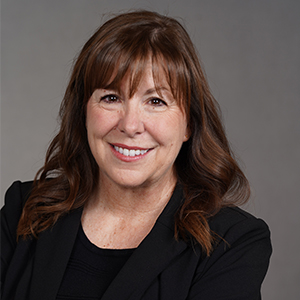Executive Conversations is a HousingWire web series that profiles powerful people in the financial industry, highlighting the operations and the people that make this sector tick. In the latest installment, we sit down with two executives from Peak Corporate Network — Eli Tene and Gil Priel, both serving as managing directors and principals.
You were both involved in real estate before forming Peak Corporate Network in 1991. What deficiencies did you see in the industry that inspired you to bring together the resources that created Peak?
 Gil —Twenty-five years ago, Eli and I formed the Peak Corporate Network after partnering on several different real estate-related projects. We shared a common frustration that the level of service offered through vendors was not adequate. They weren’t knowledgeable in the nuances of managing a diversified portfolio of performing and non-performing assets, nor were they inspired to help us maximize the value of our portfolio. We felt that, with our industry connections and experience, we could build a much more responsive set of services for small and medium investors from the perspective of an owner, or a principal in real estate.
Gil —Twenty-five years ago, Eli and I formed the Peak Corporate Network after partnering on several different real estate-related projects. We shared a common frustration that the level of service offered through vendors was not adequate. They weren’t knowledgeable in the nuances of managing a diversified portfolio of performing and non-performing assets, nor were they inspired to help us maximize the value of our portfolio. We felt that, with our industry connections and experience, we could build a much more responsive set of services for small and medium investors from the perspective of an owner, or a principal in real estate.
At the time, the industry was in a “down” cycle, so we assembled a team to focus on foreclosure processing. From there we realized the need to develop a comprehensive “one-stop platform” of real estate services. In a joint venture with institutional partner MSD Capital in 2006, we built the platform with the acquisition of a $74 million note pool. We brought in resources to handle the entire portfolio on our own, from cradle to grave, providing all the hands-on, heavy-touch servicing that we’ve learned to do. What the industry lacked at the time was a service provider that could efficiently manage smaller note pools of under 1,000. The note pool acquisition presented the case study for us to see how to effectively provide a niche service for smaller investors.
As both owner and servicer of the notes within the portfolio, we discovered different approaches to maximize the value return, including rehab, repositioning of properties, or “rent to hold” tactics until the market stabilized. Our strategy was extremely successful, and the Peak Corporate Network was the perfect vehicle to share our experience in default and servicing with other investors.
How do the 11 entities that operate as the Peak Corporate Network support your core value proposition that “Everything Real Estate”?
 Eli —within the 11 entities that operate as Peak Corporate Network we have the most unique bank of knowledge around when it comes to real estate. The typical Network client will appreciate the fact that we are adept in meeting the servicing needs of the portfolio, but can facilitate loss mitigation, short sales, and foreclosure processing as well. We also have both residential and commercial real estate brokerages in house, 1031 Exchange services, and can provide access to conventional debt financing, joint venture equity, mezzanine and bridge financing and structured debt. The Network also has at its disposal dedicated escrow services which special expertise in handling residential and commercial escrows. The fact that these brands are all in one place demonstrates that we can deliver on our value proposition of “Everything Real Estate,” and can maximize investor return for performing and non-performing scenarios for portfolios consisting of one or 1,000 loans or more.
Eli —within the 11 entities that operate as Peak Corporate Network we have the most unique bank of knowledge around when it comes to real estate. The typical Network client will appreciate the fact that we are adept in meeting the servicing needs of the portfolio, but can facilitate loss mitigation, short sales, and foreclosure processing as well. We also have both residential and commercial real estate brokerages in house, 1031 Exchange services, and can provide access to conventional debt financing, joint venture equity, mezzanine and bridge financing and structured debt. The Network also has at its disposal dedicated escrow services which special expertise in handling residential and commercial escrows. The fact that these brands are all in one place demonstrates that we can deliver on our value proposition of “Everything Real Estate,” and can maximize investor return for performing and non-performing scenarios for portfolios consisting of one or 1,000 loans or more.
Your company specializes in solutions for small- to- medium investor class. What pain points are they feeling right now, and how does Peak address those issues?
Eli — We’re proud that we can meet the needs of any size investor –institutional, non-institutional, entrepreneurial, or anywhere in-between. Our expertise in servicing with an emphasis on default virtually guarantees their expectations will be met. We’re also aware that investors are concerned about market fluctuation. There are different strategies to take advantage of up, down and in-between phases of a cycle which may call for patience or quick action to take advantage of an opportunity. Our experience as investors actively participating in the industry, and the knowledge base we’ve compiled to keep us stable through all cycles, are what we can convey to investors to exceed their expectations.
We see ourselves as a boutique provider of services that first understands the needs of investors, then customizes a plan of action that ensures investors not only are satisfied their goals are being met, but also feel our commitment in treating their portfolio as a personal investment and not just an account. We have an advisory board that meets monthly to review each portfolio under management. Each loan and each investor gets attention that you will not see anywhere else, with a response time that is second to none in this industry. Our standing policy is that EVPs speak personally with each investor within 24 hours to ensure our clients are getting the high-touch, personal service they deserve. We are also keenly aware of dissatisfaction with fees, especially pertaining to loan servicing. We address this with an all-inclusive, up-front pricing system to address the frustration many investors have voiced regarding fees and unexpected charges. We can also act as a component servicer, and can offer “à la carte” pricing on services for investors who require it.
How have you adapted to the cyclical nature of the housing industry over the past 20 years, and how can Peak Corporate Network help independent and institutional investors adapt for future volatility?
Gil — We have built a network of services that we believe are cycle-proof. We’ve successfully mastered the default side of the business as demonstrated with short sale negotiations, foreclosure and trustee services. The most volatile factor we’ve faced is adapting to a tighter regulatory environment. To that end we have a strong compliance team in place that takes a hands-on, proactive approach to mitigate regulatory risk.
Now that real estate is in a recovery mode, the entities have adapted to offer the best services conducive to traditional markets, whether it’s in servicing performing loans or continuing to maximize the value of portfolios that may have been funded during the downturn. The best solution for the investor is usually to keep the current borrower in their home and work with them and help them build equity in again.
The way we can help investors is to perform a soup-to-nuts risk evaluation of their portfolio going forward. We’re currently in a positive market, so we can do the valuations, the enhancements and recommend ways properties can be positioned to recover more quickly or recommend a sale or other exit strategies as opposed to a long-term hold. Over 35 years’ experience in the industry and having survived three very strong cycles has taught us with each cycle how to mitigate the risk that comes with those changes. If investors harbor any doubts about whether or not their portfolios are properly positioned or are questioning the level of service they’re receiving, our team is available to meet to discuss your concerns.
Are you optimistic about the opportunities for real estate investors in the near future?
Eli — Absolutely. The way technology has provided better ways to monitor and measure the market helps us all as investors make better decisions. But we should never underestimate the human element. Investors must understand smart decisions to maximize their portfolio must include making the right decision on who’s going to handle it and define clearly their expectations from such a company. We have a new generation with an expectation that their concerns are going to get answered quickly. The more there’s a connection with the borrower the more they can maximize the return on their investment, and I’m proud to say that our approach to servicing integrates this concept into the typical servicing workflow more effectively than our competitors, and our solution ultimately improves the value of their portfolio.
Gil — I’m also optimistic about the opportunity for real estate investors. I think the true bargain hunting era of real estate has mostly passed, but I believe the market is stable for the next two to three years.
Smart investors should be trying to secure this historical low financing that is available for commercial and residential now. We’ve been able to fund many loans at historically low rates and we believe right now is a time to tie up long term low-interest financing, and try to buy those quality assets that otherwise might have less value. So I’m optimistic about the opportunity in the next few years — after that it’s a little cloudier, depending on the direction of interest rates and other uses of capital that may come in that let people get better returns than they can right now.







